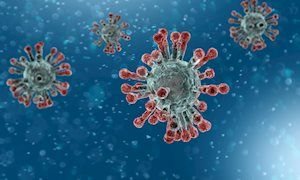9 January 2018

Pim Assendelft
The role of prevention in medical care has recently been described and discussed in various strategy reports by Dutch medical professional organisations. However, there are still doubts concerning the effectiveness and feasibility of practicing preventive medicine. Both inconclusive evidence on its effectiveness, including on long-term outcomes of preventive medicine interventions, and studies showing positive results have been published. In general, more intensive approaches towards lifestyle change are more effective. Regarding disease-related prevention intervention, various authors stress that this is undoubtedly a task reserved for physicians. Their degree of responsibility and input is less clear when it comes to indicated and selective prevention. Nonetheless, for these latter types of prevention there seems to be a role reserved for the physician, given the increase in lifestyle-related chronic diseases and the prevalence of social class related health inequity. Here, the author argues that physicians are ideally positioned as advisor and motivator, especially towards more vulnerable patients. Preventive aftercare can then be organised in partnership with other providers. To take an active role in prevention still needs 'guts', and physicians are challenged to take a position in this.
read article
 Pim Assendelft, theme Healthcare Improvement Science, discusses the role of the physician in prevention in a recent issue of the Netherlands Journal of Medicine (‘NTVG’).
Pim Assendelft, theme Healthcare Improvement Science, discusses the role of the physician in prevention in a recent issue of the Netherlands Journal of Medicine (‘NTVG’).
Pim Assendelft
The role of prevention in medical care has recently been described and discussed in various strategy reports by Dutch medical professional organisations. However, there are still doubts concerning the effectiveness and feasibility of practicing preventive medicine. Both inconclusive evidence on its effectiveness, including on long-term outcomes of preventive medicine interventions, and studies showing positive results have been published. In general, more intensive approaches towards lifestyle change are more effective. Regarding disease-related prevention intervention, various authors stress that this is undoubtedly a task reserved for physicians. Their degree of responsibility and input is less clear when it comes to indicated and selective prevention. Nonetheless, for these latter types of prevention there seems to be a role reserved for the physician, given the increase in lifestyle-related chronic diseases and the prevalence of social class related health inequity. Here, the author argues that physicians are ideally positioned as advisor and motivator, especially towards more vulnerable patients. Preventive aftercare can then be organised in partnership with other providers. To take an active role in prevention still needs 'guts', and physicians are challenged to take a position in this.
read article
-
Want to know more about these subjects? Click on the buttons below for more news.
Related news items

VWS report on AI and describes added value of MonitAir app
1 February 2022 The report Social costs and benefits of Artificial Intelligence in healthcare from the Dutch Ministry of Health, Welfare and Sport was published. The researchers were positive about the smart app MonitAir, which was partly developed by Primary and Community Care of the Radboudumc. read more_zelf-bijgesneden.png.aspx?width=500&height=311&ext=.png&type=BlockColumn1Zoom1)
Yvonne Schoon appointed professor by special appointment 'The right care for the right older person'
6 December 2021Yvonne Schoon has been appointed professor by special appointment 'The right care for the right older person' at the Radboudumc / Radboud University as of 1 October 2021.
read more
Participating in cancer research among people with intellectual disabilities
30 November 2021 Thanks to the support of the Maarten van der Weijden Foundation research was carried out into the participation of people with intellectual disabilities in (population) screening for cancer. read more


